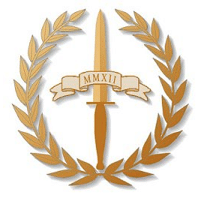National Defense Briefs – May 19, 2014
May 19, 2014By W. Thomas Smith Jr.
Fifteenth in the series, National Defense Briefs. Each week we bring to readers of MidlandsBiz.com updates aimed at informing with timely military and homeland-security news briefs, trends, definitions, and short commentaries. Defense issues are inextricably connected to business. In that, we present the “National Defense Briefs” that matter.
- As of this writing [MONDAY, MAY 19, 7:30 p.m. EASTERN], Thailand’s army has declared martial law, according to the AP referring to the declaration as “a surprise announcement in Bangkok before dawn on Tuesday, intensifying the turbulent nation’s deepening political crisis. The military, however, denied a coup d’etat was underway.”
- Gen. James Amos, commandant of the U.S. Marine Corps, said – of the deadly V-22 Osprey crash that killed 19 Marines in 2000 – “As I reflect on the mishap I cannot ignore the charged atmosphere into which the pilots flew that night, carrying on their shoulders a critically important program. I believe they were eager to vindicate a revolutionary technology.” [Read The V-22 Osprey’s deadliest accident]
- According to The Christian Science Monitor, “After years of complaining that China is engaged in stealing trade secrets from American companies, the United States on Monday for the first time filed cyber-espionage charges against individuals belonging to a unit of the Chinese military, accusing them of hacking trade secrets since 2006 from five domestic manufacturers and the steelworkers union.”
- Rebel Libyan Gen. Khalifa Haftar has vowed to rid Benghazi of Islamist militants and terrorists as the Libyan army’s special forces join Haftar’s Libyan National Army against Jihadi fighters. According to Germany’s state news agency Deutsche Welle, “The special forces are the best-trained fighters in Libya’s army. They had previously been used to curb the number of car bombings and assassinations in Benghazi last year, but have struggled to combat the many militias around the city.”
- Deutsche Welle also reports, “Heavily armed militias have operated in Libya with a free hand (since NATO-backed rebels ousted and killed dictator Moammar Gadhafi in 2011). In Sept. 2012, Islamist militants attacked an American diplomatic compound in Benghazi, killing U.S. Ambassador Christopher Stevens. Recently, Tripoli acknowledged for the first time that terrorist groups were operating in Libya. The government has said that it is mobilizing forces to deal with the threat.”
- Iranian Adm. Ali Fadavi, commander of the Naval element of Iran’s Islamic Revolutionary Guard Corps (IRGC), vowed to “destroy the U.S. Navy” in “any upcoming confrontation” by employing an assymetrical mix of “suicide attacks, drone strikes, and missile technology.” Such rhetoric – though largely hollow – is not new for the IRGC which funds and operationally supports Lebanon-based Hezbollah.
- Iran has two sets of armed forces: The largely Shia West Asian nation maintains its state armed forces – which includes army, navy, and air forces – and it maintains the Islamic armed forces under absolute control of the mullahs, which is the Islamic Revolutionary Guard Corps (IRGC). Like the regular state armed forces, the IRGC maintains ground, naval and air units. But it also is responsible for the strategic missile forces. The IRGC commands the Basij militia, an all-volunteer paramilitary force fiercely loyal to the revolution. And the IRGC maintains the Quds Force, which is responsible for the IRGC’s foreign activities.
 – W. Thomas Smith Jr. is a military analyst and partner with NATIONAL DEFENSE CONSULTANTS, LLC. Visit him at http://uswriter.com.
– W. Thomas Smith Jr. is a military analyst and partner with NATIONAL DEFENSE CONSULTANTS, LLC. Visit him at http://uswriter.com.





















